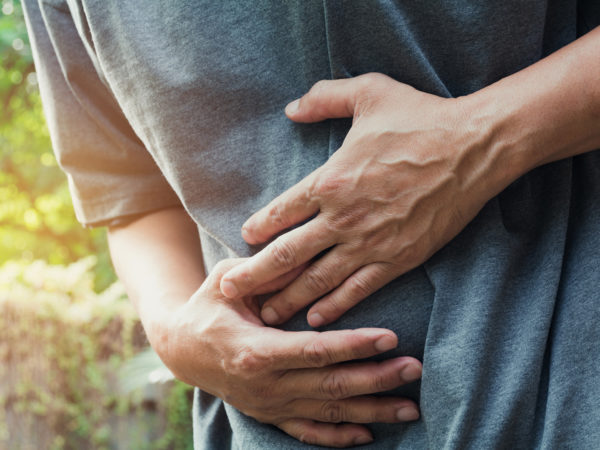Controlling IBS-C?
I have been diagnosed with IBS-C. Can you tell me what kind of diet to follow for this problem? I have no other health issues, I’m not overweight, and I walk daily.
Andrew Weil, M.D. | March 21, 2019

IBS-C is irritable bowel syndrome (IBS) with constipation as a predominant symptom. IBS affects 10 to 20 percent of adults in the U.S. at some point in their lives. This is considered a “functional” condition, meaning there is no measurable change or damage to the body’s physical structure. It is a disturbance of the normal functioning of the lower digestive tract, due to faulty nervous system regulation. Symptoms are variable and change over time.
The symptoms of IBS-C include abdominal pain and discomfort and, sometimes, bloating, gas, and changes in bowel function. These can include straining, infrequent stools, hard or lumpy stools or a feeling that your bowel doesn’t completely empty. Abdominal discomfort often diminishes after a bowel movement.
We don’t know what causes IBS-C. Sometimes it occurs after a GI infection or as a result of changes in bacteria normally found in the gut (the microbiome). Some experts think it is related to how the intestines move or contract or how the digestive system senses pain.
Unfortunately, there’s no definitive cure for IBS-C so you have to focus on measures that can help reduce symptoms. These include dietary changes as well as lifestyle measures aimed at reducing stress.
If your symptoms can be traced to consuming a particular food or foods, avoidance may help reduce them. Dietary triggers vary from person to person, so you will have to experiment with eliminating and then reintroducing specific foods. My main dietary recommendation for dealing with this problem is a high-fiber diet. That requires consuming at least 40 grams of fiber per day by increasing your consumption of fresh vegetables, fruits and legumes as well as whole-grain, fiber-rich cereals.
The Low FODMAP diet sometimes is recommended for IBS-C. FODMAP stands for fermentable oligosaccharides, disaccharides, monosaccharides and polyols – forms of carbohydrate that can be difficult to digest. Their fermentation in the GI tract can result in bloating, discomfort, and other symptoms. FODMAPs include wheat, rye, onions and legumes, lactose (found in soft cheese, yogurt and milk), fructose (as in high-fructose corn syrup), honey and certain fruits, including apples and pears. Artificial sweeteners, such as sorbitol, are also regarded as FODMAPs. Eliminating these foods may help you identify which ones are most likely to bring on your symptoms.
Other recommendations are reducing your intake of caffeine, soda and gas-producing foods. Cutting back on alcohol can also help, as can taking probiotic supplements. Your physician may recommend a laxative or stool softener to stimulate bowel movements.
Here’s where you can learn more about the lifestyle changes, nutrition and supplements I recommend for dealing with IBS.
Andrew Weil, M.D.
Source:
William E. Whitehead et al, “Chronic Constipation and Constipation-Predominant IBS: Separate and Distinct Disorders or a Spectrum of Disease?” Gastroenterology & Hepatology, March 2016











